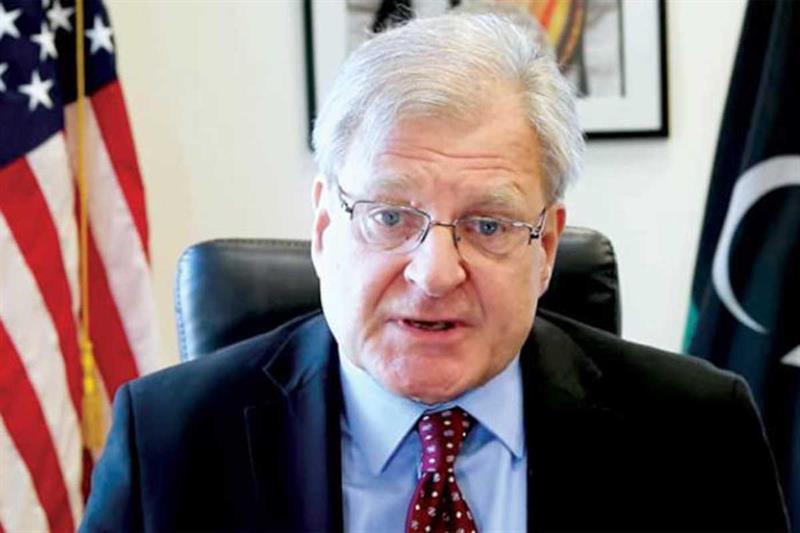
US Ambassador and Special Envoy to Libya Richard Norland. Photo: US Embassy
"The United States continues to support the vast majority of Libyans who expect elections and demand that the country's oil wealth be managed responsibly," ambassador Richard Norland said, according to an embassy statement.
Normally based in neighbouring Tunisia due to Libya's delicate security situation, Norland spoke in Tripoli during the first overnight visit by an American ambassador in years.
Libya, which has Africa's largest oil reserves, has seen more than a decade of intermittent conflict since the 2011 toppling and killing of dictator Moamer Kadhafi in a NATO-backed revolt.
"While the ceasefire and dialogue have continued, it is alarming that some narrow interests are using the oil sector as a weapon or have unilaterally made decisions affecting the spending of Libya's oil revenues," Norland said.
Crude pipelines, refineries and export terminals have frequently been blockaded in both local disputes and bigger political struggles.
Norland's comments came more than two months into the latest blockade, by forces backing one of two governments vying for power.
The envoy said Washington supports "concrete steps to end the misuse of economic tools as part of political disputes, by any side."
His comments also come as US inflation has soared to highs not seen in decades, due in part to elevated global oil prices.
Libya's National Oil Corporation (NOC) said Monday that a blockade at oil installations in the central Mediterranean coastal region of Sirte meant it may declare force majeur, a measure freeing it of contractual obligations due to circumstances beyond its control.
The blockade of two major oil export terminals and several oilfields began in April, after the eastern-based parliament appointed a new prime minister in a direct challenge to a Tripoli-based Government of National Accord (GNA).
The parliament-backed candidate, ex-interior minister Fathi Bashagha, is supported by eastern-based Libyan National Army (LNA) lead by general Khalifa Haftar, who led a failed bid to seize Tripoli in 2019-20.
Tripoli-based premier Abdulhamid Dbeibah, appointed as part of UN-led peace efforts after that battle, has refused to cede power except to an elected government.
While LNA forces control major oil facilities, revenues are managed by the central bank of Libya, whose head is seen as close to Dbeibah.
Short link: